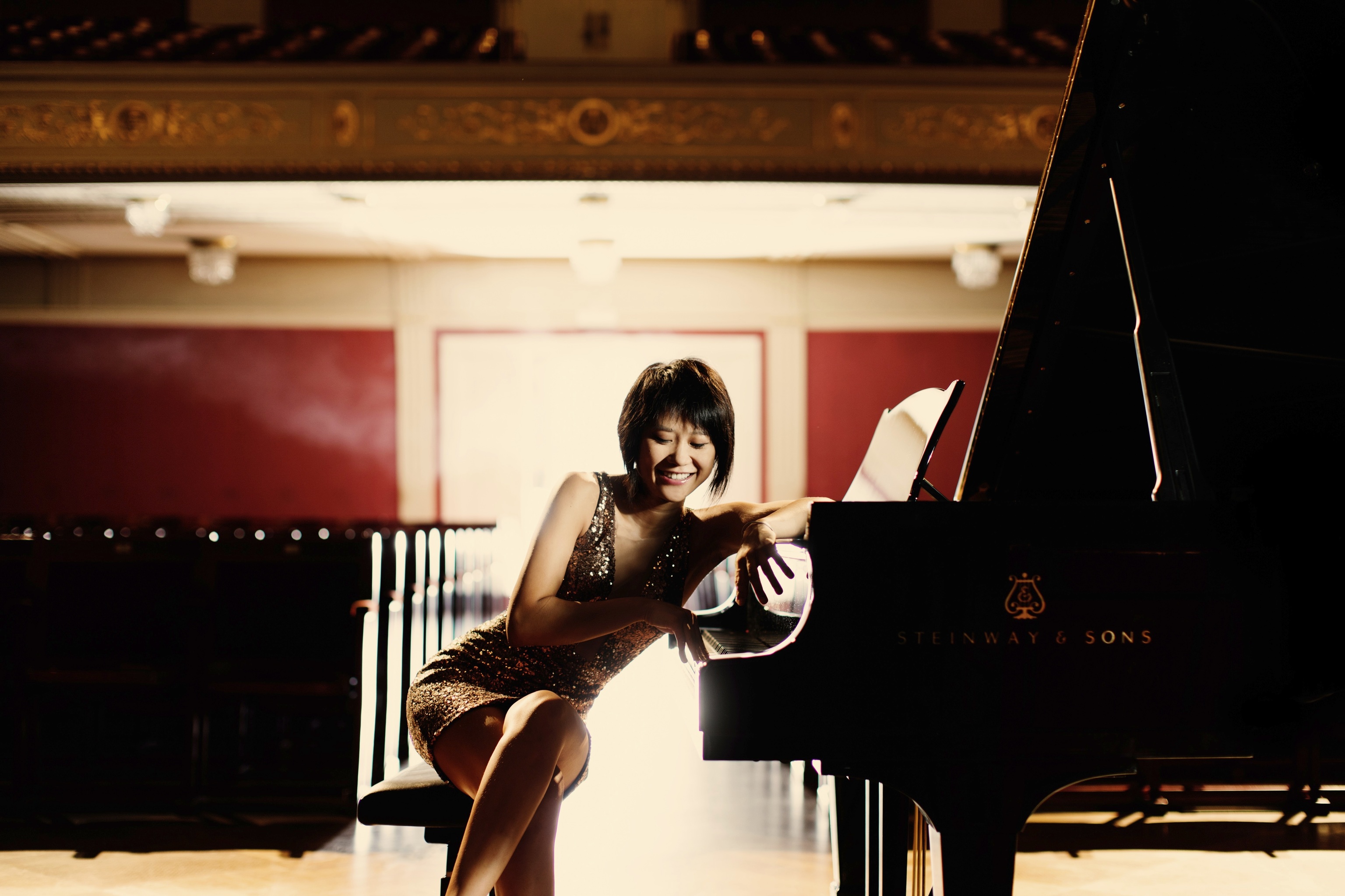There are love stories that, in their effort to transcend borders and cultures, end up establishing their own geopolitics of affections. Nothing foreshadowed that the Chinese pianist Yuja Wang (37) and the Finnish conductor Klaus Mäkelä (28) were going to star in one of the most talked-about romances in classical music. They met in November 2022 through mutual friends, and the chemistry quickly took effect: first on concert stages and later in offices, where the executives of the powerful agencies representing them began to rub their hands together at the advent of an artistic agreement as profitable as it was incompatible.
Daughter of a percussionist and a dancer, Wang is part of, alongside Lang Lang, Yundi Li, and Wu Qian, the famous dream team that in the last fifteen years has awakened an unprecedented appetite for classical music among the younger audience in the giant Asian country. Wang left China at the age of 14 to study music in Canada and later at the Curtis Institute in Philadelphia. She became a global celebrity in 2007 when maestro Lorin Maazel signed her for a tour of Japan and Korea with the New York Philharmonic, where she has lived ever since, "weary," she says, "of the slogans of the #MeToo movement that occasionally camp at the doors of the neighboring Lincoln Center demanding someone's head on a silver platter."
Mäkelä is a son of the ice. He was born in Helsinki, during one of those winters that allow walking on the waters of the Baltic Sea, into a family of musicians. This explains why, at just 12 years old, he was sponsored by Jorma Panula, a master of masters like Esa-Pekka Salonen and Jukka-Pekka Saraste, to continue an unusual generation of conductors destined to inherit the great podiums. Mäkelä's rapid rise (at 28 years old, he is the principal conductor of the Oslo Philharmonic and the Orchestre de Paris, and starting in 2027, he will juggle directing the Chicago Symphony and the Concertgebouw in Amsterdam) is due to musical criteria, yes, favored by the good looks of someone who could make a living as a runway model.
Earlier this year, the schedules of Yuja Wang and Klaus Mäkelä underwent several last-minute changes, precisely in the concerts where they were supposed to coincide as conductor and guest soloist. After several months of rumors on internet forums, the worst suspicions were confirmed when the Finnish musician and the Chinese performer stopped following each other on social media at the same time. The pleas of their fans for a reconciliation, at least artistically, like Charles Dutoit and Martha Argerich (also a conductor and pianist who, after an unexpected divorce, continued to share the stage), were in vain: apparently, the short-lived romance between Wang and Mäkelä was too passionate and intense to face each other again in a crowded room full of witnesses.
Last July, Mäkelä conducted a couple of concerts at the Palacio Carlos V as the headliner of the Granada Festival. He did not grant a single interview. His exquisite versions of Schoenberg's Transfigured Night and Mahler's Fourth Symphony reaffirmed his dual status as a golden boy of classical music and a worthy heir to Riccardo Muti in American lands. A few weeks later, on August 9, Wang visited the Santander Festival. She also avoided questions from the press, but it was evident that she was not at her best and even found it difficult to smile, which of course did not prevent her from captivating the audience with a program that encompassed all moods: from the luminous, almost cheerful atmosphere of Ravel's Jeux d'eau to the arrangement of the second movement of Shostakovich's String Quartet No. 8, which Wang played as if all the pain that the Russian composer poured into the score was not foreign to her.
